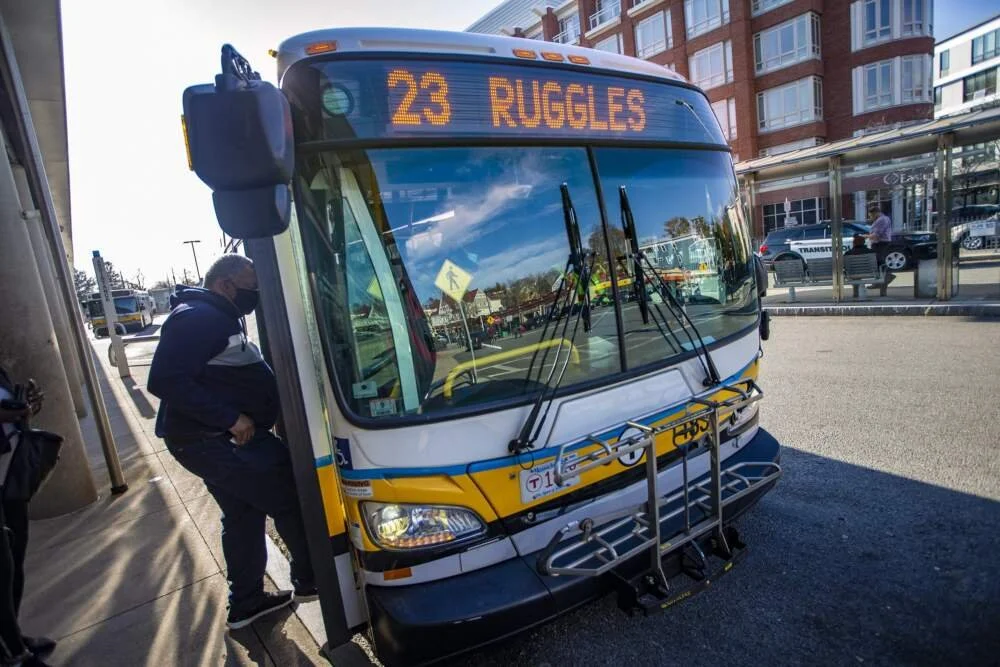Roxbury for Roxbury: Advancing Reparative Planning
23 Bus
Transportation Planning and Urban Resilience: How Boston’s Past Planning Mistakes Can Influence Future Successes In Roxbury
This reparative planning project examines the historical and current relationship between community organizing and urban planning in the Roxbury neighborhood of Boston. Research included a historical literature review, a literature review of reparative planning along with three case studies of cities engaging in reparative planning work, and interviews with community stakeholders. We partnered with graduate students from Tufts University Urban and Environmental Policy and Planning Program, who worked closely with RC’s president and principal-in-charge.
Advancing Reparative Planning at Rivera Consulting
Reparative planning is a planning approach that addresses the racialized history of urban planning by actively working to repair past and ongoing harm. Reparative planning builds on the concept of reparations and aims to create a more equitable and inclusive planning process.
It helps bring together technical, community knowledge and community assets while also looking to unpack the resistance - historical and current - to development and transportation projects.
In the case of Roxbury, this research helps demonstrate how low-income residents and renters have not equitably shared in the benefits of growth and economic development of Boston overall. This makes transportation projects an inevitable symbol - whether perceived or real - of displacement. That has created a foundational resistance that is often underestimated or not addressed effectively in the planning process.
Advancing Roxbury for Roxbury is a commitment to approaching engagement, planning, and engineering with the aim of three key reparative planning principles: public recognition, material redistribution, as well as social and spatial transformation.
Project Logo
Our Central Research Questions
- At a time when federal funding is at risk across the Commonwealth as well as in Boston, what lessons can we learn from past planning initiatives and protest movements in Roxbury, Boston, and across the country to prepare for the road ahead?
- How can future projects like Roxbury Resilient Corridors disrupt existing planning paradigms and uphold reparative planning principles and make sure that potential long-overdue investments benefit Black and immigrant residents of Boston?
Methods
01. Historical Literature Review
Focused on the history of transportation planning and community organizing in Roxbury.
Examined archival, academic, and governmental documents to understand the interplay between government-initiated planning and community-led efforts.
Highlighted themes such as racial segregation, urban renewal, transportation inequities, and community control.
02. Reparative Planning Literature Review and Case Studies
Investigated the emerging field of reparative planning, which addresses racialized harm through public recognition, material redistribution, and social/spatial transformation.
Reviewed foundational papers and case studies from Seattle, Minneapolis/St. Paul, and Chicago to understand how reparative planning principles are applied in practice.
03. Community Stakeholder Interviews
Conducted eight interviews with community leaders and stakeholders to gather insights on the history of organizing and activism in Roxbury.
Questions focused on past community engagement efforts, the current moment of activism, and lessons for future planning.
Used an iterative process to develop the interview protocol in collaboration with Rivera Consulting.
Recommendations
A. Reparative Planning and Roxbury for Roxbury
It’s important to acknowledge and address previous harms caused by policy and planning in order to do meaningful, equitable work today.
B. Community Engagement and Capacity Building
- Planners should work to deepen trust and develop meaningful relationships with community members by partnering with other local city agencies in providing opportunities for community members to be involved before technical research begins such as bidders interviews, project goal and outcome setting, or public education campaigns.
- Planning practice should implement methods of community engagement that align with principles of community control and community selfdetermination, such as capacity building partnerships with local city agencies and local community based organizations to increase community knowledge of transportation and climate needs in their neighborhoods.
C. Knowledge-Building and Information Sharing
- The Boston Transportation Department should be building on the work that the agency and community has already done by sharing the key lessons and pain points that form a foundation for planners and other City of Boston staff. Information sharing is key to maintaining knowledge-building and relationship-building.
- Best practice for transportation planning should incorporate local community experience by opening upstream points of engagement before an existing conditions analysis is conducted, which can be the bidder selection process or as part of the project goal and outcome setting process.
- Effective community engagement requires increased capacity building and public education from and to impacted communities, and requires the development of a shared understanding of planning challenges.
Full Report
You can read the full report here. This project is a joint effort between Rivera Consulting and the Tufts Department of Urban and Environmental Policy and Planning.
Interested in Working with Us?
Click the button below to book a 30-minute exploratory call with Wilnelia Rivera, RC President.


